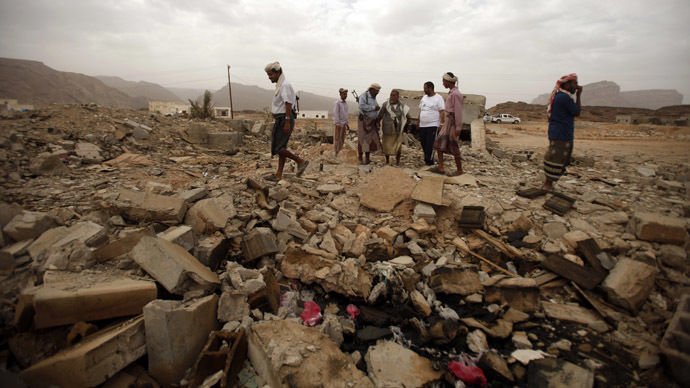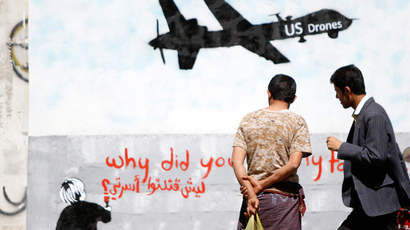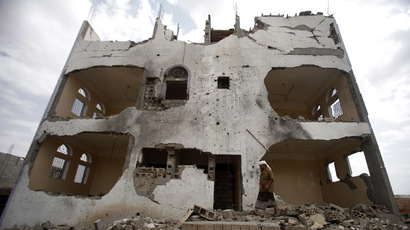Fatal error in ‘wedding party’ drone strike prompts UN condemnation

UN human rights experts have called on the US and Yemen for transparency and accountability over the use of drones, particularly in view of a recent operation, when a wedding procession was mistakenly attacked.
Special Rapporteurs, appointed by the Geneva-based UN Human Rights Council (UNHRC), have asked the US and Yemen to reveal if they were responsible for the December-12 air strike. 16 civilians were killed and at least 10 injured in central al-Bayda province, according to local officials. The victims belonged to two separate wedding processions and were presumably erroneously taken for an Al-Qaeda convoy. Local media then reported that a drone attack was to blame for the tragedy.
If that was the case, the UN experts demand transparency over what targeting standards were used in the operation, what the death toll exactly was and whether families of the killed are going to receive compensation.
“If armed drones are to be used, states must adhere to international humanitarian law, and should disclose the legal basis for their operational responsibility and criteria for targeting,” said Christof Heyns, UN Special Rapporteur on extrajudicial, summary or arbitrary executions.
Heyns stressed that Yemen shared responsibility with the US in cases of drones use in their country.
“Yemen cannot consent to violations of the right to life of
people in its territory,” he added in a UNHRC news release.
Special Rapporteur on Torture, Juan Méndez, also expressed concern about the legitimacy of the airstrikes.
“A deadly attack on illegitimate targets amounts to cruel, inhuman or degrading treatment if, as in this case, it results in serious physical or mental pain and suffering for the innocent victims,” Mr. Méndez said.
In the wake of the attack on wedding processions, Yemen’s parliament passed an anti-drone motion on December 16. The motion is, however, non-binding and is more of a recommendation to the government. In order to acquire political weight it has to be approved by the president.

The UN has already criticized the US drone program in the October interim report “on the use of remotely piloted aircraft in counter-terrorism operations,” authored by Special Rapporteur Ben Emmerson.
The report, the final version of which is due in 2014, argues the number of civilians killed in anti-terrorist drone operations is higher than publicly acknowledged, and condemns the US for lack of transparency over the issue.
"The Special Rapporteur does not accept that considerations of national security justify withholding statistical and basic methodological data of this kind," Emmerson wrote in the report.
Also in October, Human Rights Watch and Amnesty International simultaneously released reports on the use of drones in Yemen and Pakistan, both questioning the legitimacy of the strikes.
“Amnesty International is seriously concerned that these and other strikes have resulted in unlawful killings that may constitute extrajudicial executions or war crimes,” the AI report reads.
“President Obama says the US is doing its utmost to protect civilians from harm in these strikes. Yet in the six cases we examined, at least two were a clear violation of the laws of war,” said Humans Rights Watch Senior Researcher, Letta Tayler.
The US then reacted by saying it did nothing illegal.
"To the extent these reports claim that the US has acted contrary to international law, we would strongly disagree,” said White House spokesman, Jay Carney. "The administration has repeatedly emphasized the extraordinary care that we take to make sure counterterrorism actions are in accordance with all applicable law."
The United States has stepped up drone strikes in Yemen, as part of its crackdown on Al-Qaeda in the Arabian Peninsula (AQAP), believed to be the terrorist network’s main stronghold.














